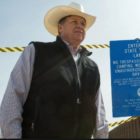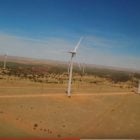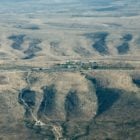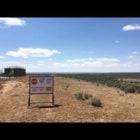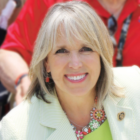2018 Election
Dunn: Land commissioner candidates won’t hold Oil & Gas accountable
|
Outgoing State Land Commissioner Aubrey Dunn grew up on an apple farm near Alamogordo and worked for 25 years in banking. He characterizes the land commissioner’s job as one of handling a thousand different things and managing almost 200 people in ways that draw from both his business background and his familiarity with land and conservation issues. He has been accused of rubber-stamping oil and gas drilling on state lands, but he argues his record shows otherwise. “As land commissioner, you have a constitutional duty to create income from lands and protect it for future generations — it’s a dual purpose,” says Dunn, who accessorizes his suit and tie with ostrich cowboy boots and lapel pins of the U.S. and “Don’t Tread on Me”-emblazoned Gadsden flags. “It’s got to be a balance: conservation and oil and gas.”
He points to a policy switch around no longer allowing wells into the Ogallala Aquifer for oil and gas operations and his fight for Texas hornshell mussel habitat as examples.
